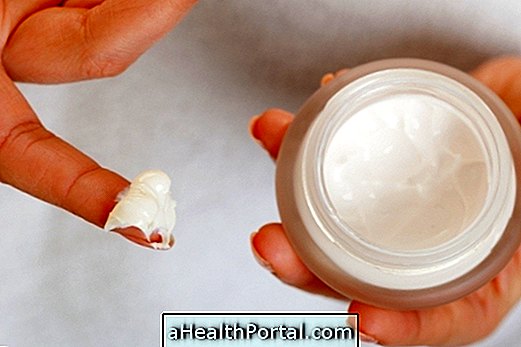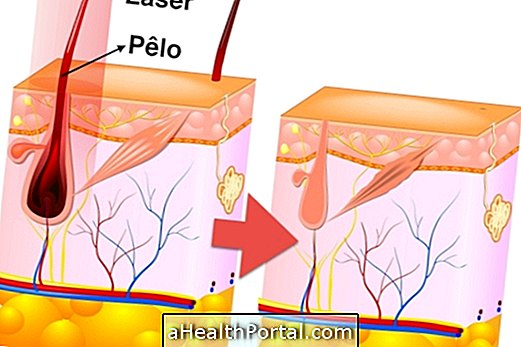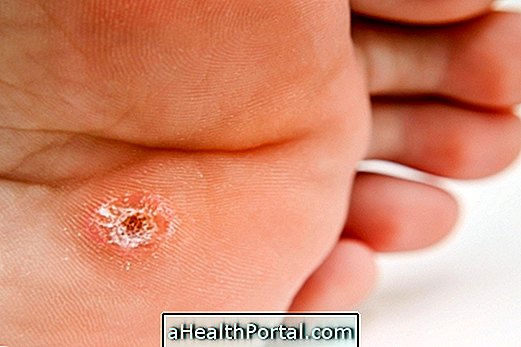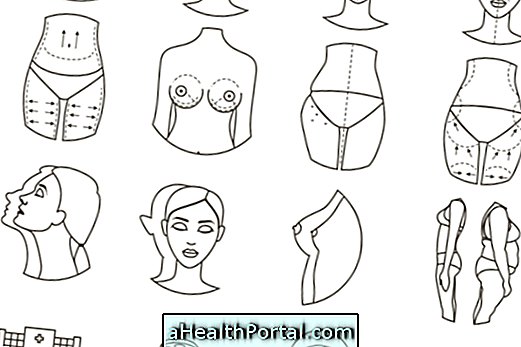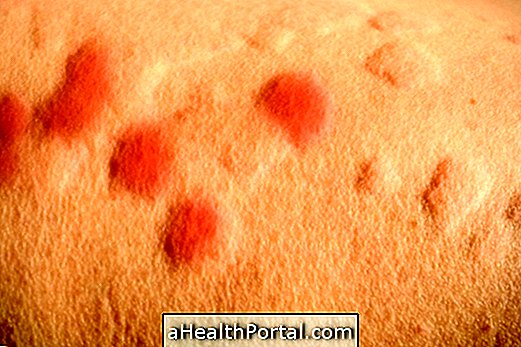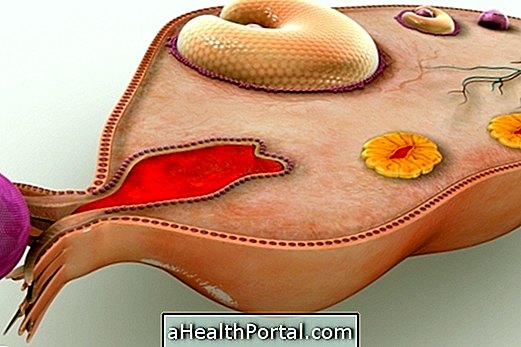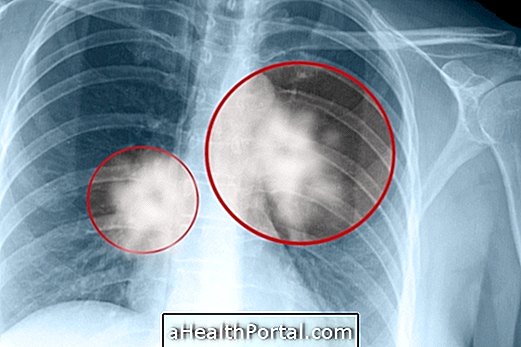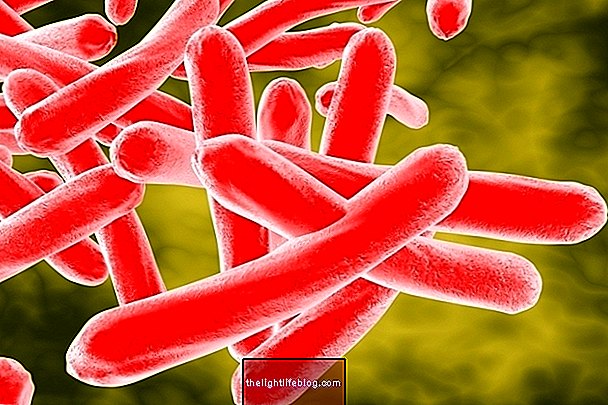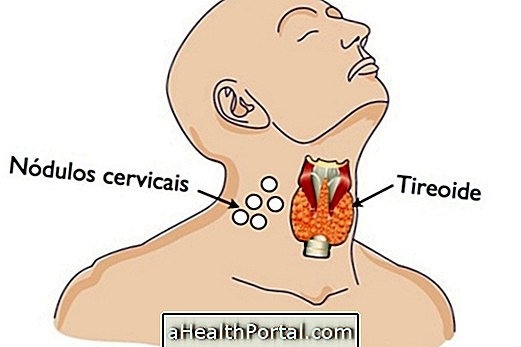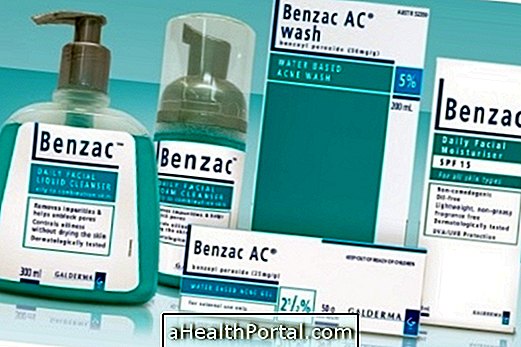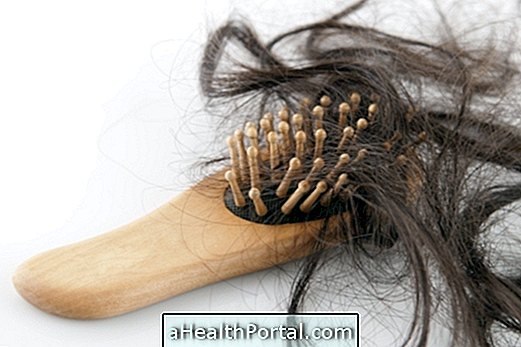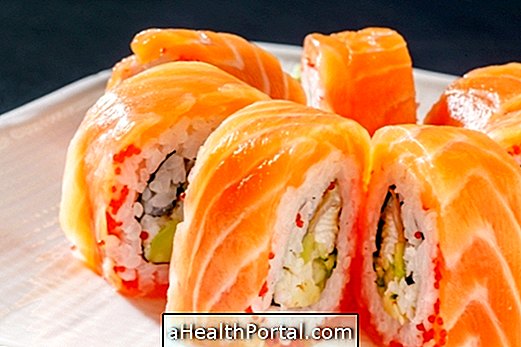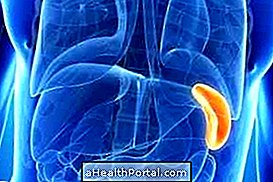Collagen is the main protein in the human body and gives support to the skin and joints. However, from the age of 25 the natural production of collagen by the body decreases 1% each year, facilitating the degeneration of these tissues, leaving the skin more flaccid with lines of expression and wrinkles.
In addition to the natural loss due to age, other factors that also influence the decrease in the natural production of collagen include hormonal changes, stress, poor diet and alcohol and cigarette abuse. Thus, to ensure the daily needs of collagen it is advised to invest in foods that favor their production as white and red meats and chicken egg or in collagen supplements, under the indication of the doctor or nutritionist.

Clarify the most common doubts about collagen.
1. What is collagen for?
Collagen is naturally produced by the body until the age of 25 and serves to support the tissues of the body such as skin, joints, blood vessels and muscles, leaving them firm. However after this age, its production begins to decrease, appearing the first signs of aging.
2. Why Does Collagen Loss Harm Health?
Type 2 collagen is the major molecule responsible for the elasticity and consistency of skin and cartilage within the joints. After 25 years its production begins to decrease and the effects begin to appear. The skin begins to grow thinner, and the lines of expression on the face begin to appear. You may notice a line between the corner of the nose and the mouth, the eyelids may become more droopy, and the crow's feet may arise. In addition, the joints begin to become looser and over time, they will have less instability, favoring arthrosis, where one bone can touch the other causing pain and discomfort.
3. What are the sources of collagen?
Protein rich foods like beef, chicken, pork, turkey, fish and eggs are the main sources of collagen, but to ensure their production you also need to eat omega 3 and vitamin C in the same meal. Check out the ideal amount you should consume daily.
4. What is the advantage of taking hydrolyzed collagen?
The main advantage of taking the hydrolyzed collagen supplement is to ensure that the body gets the optimal amount every day and as it is fractionated, it is more easily absorbed. This supplement contains high concentrations of proline, hydroxyproline, alanine and lysine, which stimulate the body's production of type 2 collagen fibers.
All people from the age of 25 can start investing in a higher intake of foods that favor collagen production, but supplementation is especially suited for those who practice physical activity with great intensity or daily. However, from the age of 50, your doctor or nutritionist may recommend supplementation to improve skin support and joint health.
In just 1 month you can see its effects on hair, skin and nails, and in about 3 months you can notice the firmer joints.

5. Hydrolyzed collagen fattening?
Taking hydrolyzed collagen does not get fat because its formula has no calories, and it even improves the appearance, making the person younger and healthier. This supplement does not increase appetite or cause fluid retention.
6. What is the risk of consuming more than 10 g daily?
The ideal amount of collagen to consume per day is about 9 grams, and this already includes the amount that should be consumed through food. The risk of consuming more than 10 g per day is to overload the kidneys, because any excess collagen will be eliminated through the urine.
7. Why do women suffer more from collagen loss?
Estrogen is one of the hormones that helps to synthesize collagen and in addition to women naturally have a lower amount of collagen in the body than men, with the natural aging process that amount decreases, and thus women can present the first signs of aging on the skin and joints earlier than men of the same age.
Basically the main source of collagen are proteins, and in the case of vegetarians who choose not to consume animal protein it may be a bit harder to achieve the recommended daily dose. Thus, those who are vegetarian should be advised by a nutritionist so that, by combining foods of plant origin, they can guarantee the amount of collagen the body needs, such as rice and beans, soy and wheat or nuts and corn, for example.
Another possibility is to take the plant-derived collagen supplement, such as Unilife's Vegan Protein W-Pro which contains the amino acids that are important for the formation of collagen in the body, or buy a combination of amino acids like proline in a pharmacy and glycine, which may be indicated by the nutritionist.
